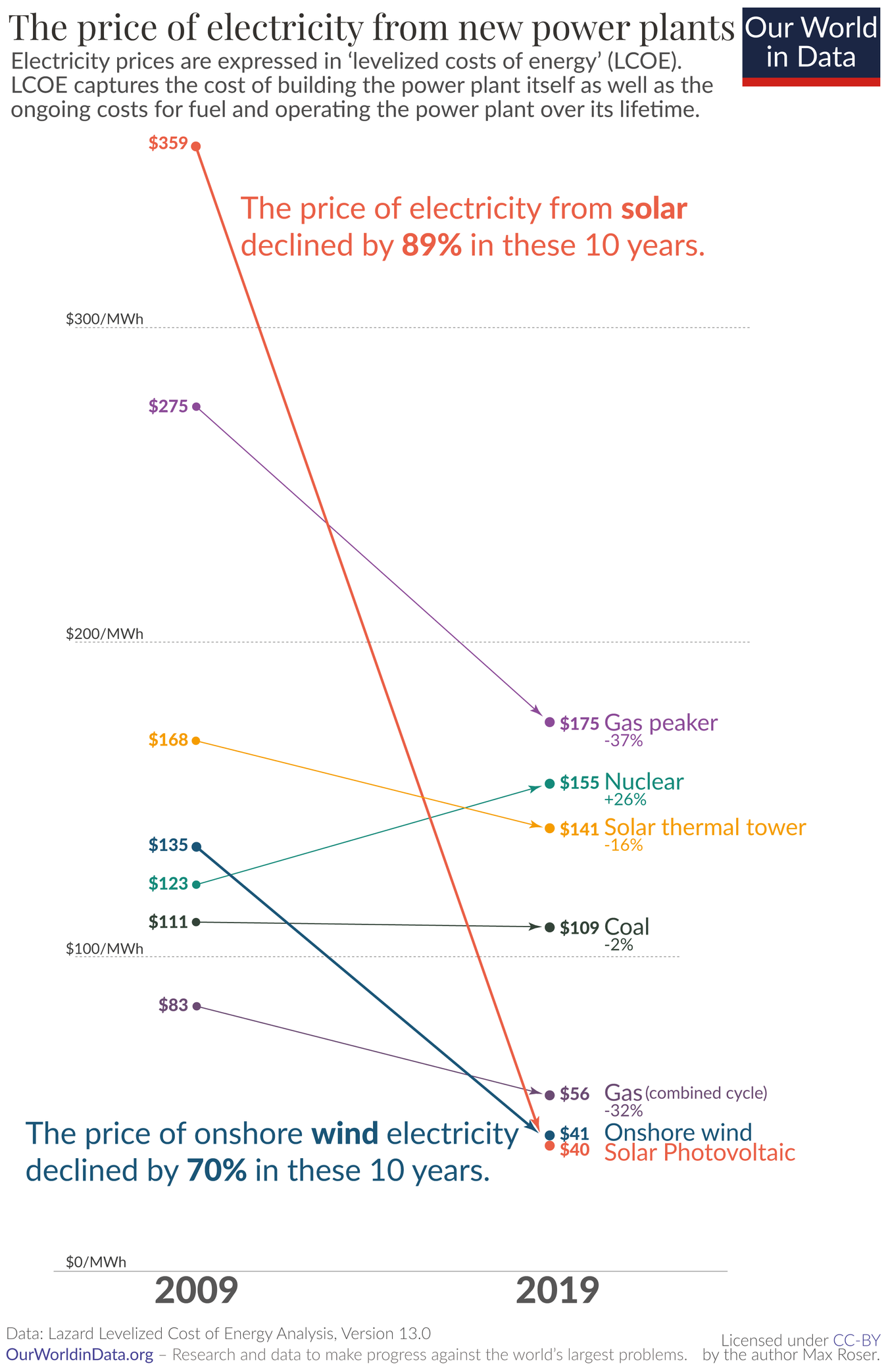view the rest of the comments
Technology
This is the official technology community of Lemmy.ml for all news related to creation and use of technology, and to facilitate civil, meaningful discussion around it.
Ask in DM before posting product reviews or ads. All such posts otherwise are subject to removal.
Rules:
1: All Lemmy rules apply
2: Do not post low effort posts
3: NEVER post naziped*gore stuff
4: Always post article URLs or their archived version URLs as sources, NOT screenshots. Help the blind users.
5: personal rants of Big Tech CEOs like Elon Musk are unwelcome (does not include posts about their companies affecting wide range of people)
6: no advertisement posts unless verified as legitimate and non-exploitative/non-consumerist
7: crypto related posts, unless essential, are disallowed

Look at the subtitle on the chart, it's levelized cost over the generator's lifetime. So not including storage for any intermittent source like solar or wind
And not including the financing cost of buying up an this upfront.
I'm buying 36kWh solar array and it will be home made diy, used.parts and maximum jank and don't paid upfront because that's the only way it makes economic sense and that's hoping it works for more than 7 years (break even point at my insolation level and and grid price (8.8$cad/kWh) and it only works with net metering)
Levelized cost averages the fixed costs over the lifetime of the generation
They're generally comparing utility scale installations, not home rooftop solar though.
In my area, you don't get any government incentives unless it is professionally installed. They get you coming and going.
Yes, I never even considered the subsidies, I know it's not for me.
Anybody can claim the tax credit though. When you file the taxes it's a box you enter a number into.
They don't ask for proof, but you'd better keep your receipts just in case.
Hmmmm, interesting. Thanks.